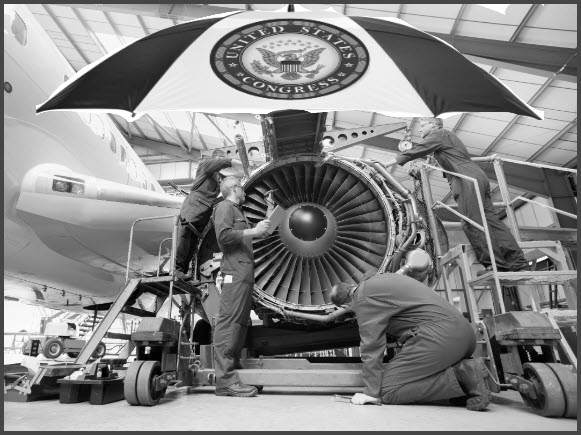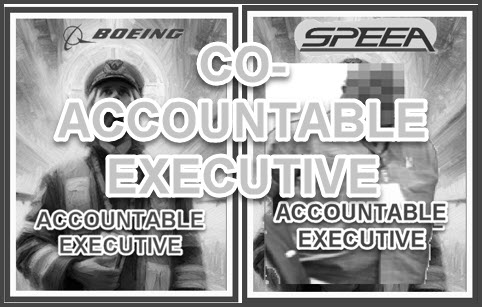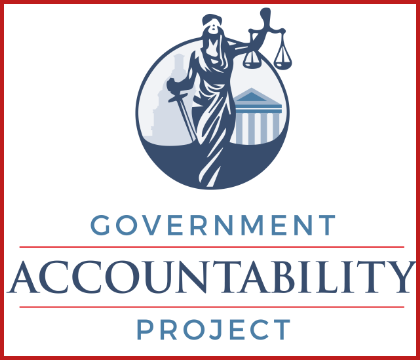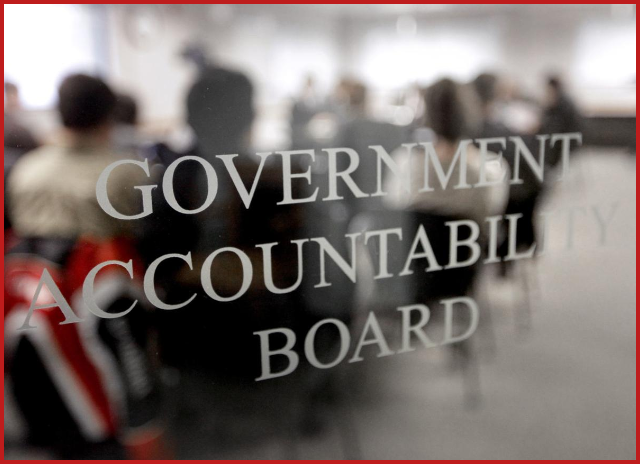Whither Safety Information – whistleblower process or FAA SMS?

Below are three articles espousing the aviation safety benefits of WHISTLEBLOWER protections, specifically in regard to the Boeing Company. First is an invitation from Society of Professional Engineering Employees in Aerospace to its members to attend sessions on “how to become whistleblowers.” The second is an epistle from the Government Accountability Project (not the GAO) recounting its successes in supporting whistleblowers, with some specificity as to Boeing employees who come forward (client(s) of GAP?) and pointing deficiencies to the protection provided for them. The third, a posting by the Whistleblower News Network, argues for additional protections and incentives.
Curiously, none of these statements address the existing FAA safety systems designed to encourage individuals working in all aviation enterprises to submit the RISKs that they observe—through the Aviation Safety Program (ASAP) for immediate remedial action through a system called Safety Management System(SMS). This concept was originally conceived by the International Labor Organization and then via its cooperation extended to aviation by the International Civil Aviation Organization.

Though all three advocate the sine qua non significance of protection of the worker, none mentions that through the Wendell H. Ford Aviation Investment and Reform Act for the 21st Century (AIR21) 9 U.S.C. §42121 and now the 2024 amendments thereto, this communication is afforded BY THIS STRONG Congressional umbrella.

Below there is
(I)an explanation of the system, as it should work,
(II)a suggestion as to SPEEA’s role,
(III) a comment on GAP’s perspective
and
(IV) an insight drawn from the WNN’s statement of motivation
I –THE FAA/BOEING SYSYEM TO INCREASE SAFETY RISK INFORMATION AND PROTECT WORKERS
Boeing has implemented a Safety Management System (SMS). In December 2020, the U.S. Federal Aviation Administration (FAA) formally accepted the SMS for Boeing Commercial Airplanes (BCA). The BCA SMS is designed to manage safety risk and assure the effectiveness of safety risk controls throughout the company’s activities. [1] Further the company participates in the FAA’s Aviation Safety Action Plan (ASAP), which, under 49 U.S.C section 40123, certain voluntarily submitted safety and security information is protected from disclosure in order to encourage persons to disclose such information to enhance safety and security. To wit,
14 CFR Part 193 – PART 193—PROTECTION OF VOLUNTARILY SUBMITTED INFORMATION
Ҥ 193.7 What does it mean for the FAA to designate information as protected?
(a) General. When the FAA issues an order designating information as protected under this part, the FAA does not disclose the information except as provided in this part.
(b) What findings does the FAA make before designating information as protected? The FAA designates information as protected under this part when the FAA finds that—
(1) The information is provided voluntarily;
(2) The information is safety or security related;
(3) The disclosure of the information would inhibit the voluntary provision of that type of information;
(4) The receipt of that type of information aids in fulfilling the FAA‘s safety and security responsibilities; and
(5) Withholding such information from disclosure, under the circumstances provided in this part, will be consistent with the FAA‘s safety and security responsibilities.”
The strength of this protection is not just regulatory, but is reinforced by the Wendell H. Ford Aviation Investment and Reform Act for the 21st Century (AIR21) 9 U.S.C. §42121
§42121. Protection of employees providing air safety information.
(a) Prohibited Discrimination.-A holder of a certificate under section 44704[2] or 44705[3] of this title, or a contractor, subcontractor, or supplier of such holder, may not discharge an employee or otherwise discriminate against an employee with respect to compensation, terms, conditions, or privileges of employment because the employee (or any person acting pursuant to a request of the employee)-
(1) provided, caused to be provided, or is about to provide (with any knowledge of the employer) or cause to be provided to the employer or Federal Government information relating to any violation or alleged violation of any order, regulation, or standard of the Federal Aviation Administration or any other provision of Federal law relating to aviation safety under this subtitle or any other law of the United States;
(2) has filed, caused to be filed, or is about to file (with any knowledge of the employer) or cause to be filed a proceeding relating to any violation or alleged violation of any order, regulation, or standard of the Federal Aviation Administration or any other provision of Federal law relating to aviation safety under this subtitle or any other law of the United States;
(3) testified or is about to testify in such a proceeding; or
(4) assisted or participated or is about to assist or participate in such a proceeding
II-SPEEA needs to be part of the SMS system
Perhaps the most significant contributors of the development of an aircraft—engineers—are being taught by their union to submit SAFETY CRITICAL and TIME CRITICAL SAFETY information as whistleblowers, AND NOT AS PARTICIPANTS in what the world’s leading aviation safety organizations considers to be, and to have been, the MOST EFFECTIVE tool for reducing risk in their professions—SMS.
It may be that the Union does not trust Boeing’s commitment to SMS, the FAA’s vigor in protecting its members or some combination of both. Recent history seems to support such a supposition. Their reluctance may actually reflect a level of involvement that has been inadequate to assure the rank and file of SMS’s efficacy and/or integrity.
Under this horrible situation, BOEING should adopt or the FAA must mandate that the ACCOUNTABLE EXECUTIVE position be held jointly by someone in the company actually directly involved in SAFETY[4] and a SENIOR SPEEA officer again with skills relevant to this demanding assignment. Might a CO-ACCOUNTABLE EXECUTIVE work?

Having shared responsibility for the safety of Boeing may result in an increase in remedial actions, TRUST and a reduction in risks.
Union offering Boeing representatives training on U.S. whistleblower laws
Reuters
Thu, May 16, 2024,

May 16 (Reuters) – A Boeing engineering union said on Thursday it will offer its representatives training on U.S. whistleblower laws for the first time, following concerns that its members lack adequate protection against possible reprisals.
The Society of Professional Engineering Employees in Aerospace (SPEEA) will hold sessions on Friday for shop stewards at Boeing and supplier Spirit AeroSystems after receiving queries from members on how to become whistleblowers, a union director told Reuters.
Testimony at a U.S. Senate Permanent Subcommittee on Investigations in April raised questions over Boeing’s treatment of whistleblowers. A Boeing engineer said at the hearing he was told to “shut up” and removed from a plane program when he flagged safety concerns.
Reuters could not independently verify the claims.
Boeing, while not immediately available for comment on the union training, has previously said it has “zero tolerance for retaliation and encourage our employees to speak up when they see an issue.”
The Federal Aviation Administration (FAA) said earlier this month it has OPENED AN INVESTIGATION INTO THE BOEING 787 DREAMLINER after an employee saw what appeared to be an irregularity in a required conformance test.
The company is going through a full-blown crisis after a door panel blew off a plane in January. Union representatives will be trained to help members who want to raise safety concerns, said Rich Plunkett, director of strategic development at SPEEA’s Seattle-area local.
Plunkett said SPEEA is trying to NEGOTIATE MORE ROBUST PROTECTIONS THROUGH AGREEMENTS WITH BOEING or through their contract.
Boeing has said it has held meetings in multiple countries to get worker feedback.
“When we find issues, we go as far as standing down a team to make sure that everybody on the team or everybody in the area is aware of the issue,” Mike Fleming, a senior vice president at Boeing Commercial Airplanes, said in a statement.
“It’s not meant to be punitive we share the information across the programs.” (Reporting By Allison Lampert in Montreal Editing by Frances Kerry)
++++++++++++++++++
(III) GAP’s perspective really does not recognize the value of SMS
Quite clearly, GAP knows the value of WHISTLEBLOWERS and does not recognize the value of AVIATION SAFETY. The organization proposes reforms that support whistleblowers submitting issues to them or perhaps OSHA—such as
- Barring Nondisclosure Agreements
- Expanding the statute of limitations
- Having “their case heard in federal court rather than relying solely on relief coming through the years-long administrative processes.
- Filling out some remaining coverage gaps
- Educating employees – and managers – about their rights and responsibilities under AIR21.
All fit GAP’s preference for the area of their focus. Item c) is an admission that this path DELAYS the correction of the SAFETY RISK identified—ANTITHETICAL to FAA’s congressional mandate.

Boeing, Plane Safety, And Quality Control: How Whistleblowers Protect Us

Boeing, Plane Safety, And Quality Control: How Whistleblowers Protect Us
For Boeing whistleblowers, the tragedies of witnessing engineering dysfunction and incompetence are both personal and political. In the past three months, two Boeing whistleblowers have tragically lost their lives. John Barnett — a client of GOVERNMENT ACCOUNTABILITY PROJECT[5] {NOTE: not GAO or other federal agency}and quality manager for Boeing – raised internal concerns for years about failed safety standards. Then he began to blow the whistle publicly about serious violations, such as use of substandard parts. Boeing retaliated against Barnett. While trying to hold Boeing accountable in court over multiple years for unlawful reprisals against him, Barnett sacrificed his career, and tragically, his life. Joshua Dean was a former quality auditor at Boeing supplier Spirit AeroSystems, who went public with claims that the company’s leadership ignored manufacturing defects in Boeing’s 737 MAX. He had been fired in April 2023 for pointing out that holes in jet fuselages had been drilled incorrectly. A year later, Dean also tragically passed away.
Public reporting has illuminated that Boeing has, in recent decades, long struggled with the “problem” of dissent and quality control under its roof. The company has a culture of reprisal. The inability to fix issues that were brought to their attention by their own employees led to numerous deaths.
Whistleblowers have long acted as quality control mechanisms, holding those in power accountable and speaking truth to power. Whistleblowers warned the company, and the public, of Boeing’s use of defective parts and other safety shortcuts. Unfortunately, plane disasters became a catalyst for air safety instead. Without the public or Congress being aware of the various Boeing controversies, the company could have perhaps kept operating with impunity.
Who are the whistleblowers?
In 2019, John Barnett came forward based on his engineering expertise to reveal that Boeing was using defective parts, including oxygen masks. Joshua Dean was one of the first to flag potentially dangerous defects with 737 Max jets in what he called “a culture of not counting defects correctly.” Dean said that Spirit pressured employees not to report defects in order to get planes out of the factory faster. In mid-January a door panel blew off an Alaska Airlines Boeing 737 Max 9 in midair, risking the safety of the passengers on board.
Joe Jacobsen also came forward about malfunctioning software onboard that led directly to crashes, such as the MCAS software. Specifically, the MCAS (Maneuvering Characteristics Augmentation System) software led to planes taking nosedives due to a faulty attempt to correct flight path and direction. The result was two horrific crashes (and possibly dozens of other, near misses) killing everyone on board – one in Malaysia (2018) and another in Ethiopia (2019). One relative of some of the deceased on the Ethiopia Airlines plane consistently has nightmares and speculations about the last moments of his wife and children as they plunged to the ground. And in 2024 alone, other incidents (up to five in one month) have occurred for far less exotic—but just as problematic–reasons. In the high-speed, high-altitude environment that air travel occurs in, several instances of crashes due to wheels falling off, and doors coming apart, unlocked a new level of horrific, and preventable, air safety failures.
What Is Congress Doing?
In 2000, Congress passed the Wendell H. Ford Aviation Investment and Reform Act for the 21st Century (known as AIR21) to prohibit retaliation against U.S. air carrier and manufacturer employees who blow the whistle on safety issues. This is the law that Barnett was seeking to enforce for Boeing’s reprisal against him for raising safety concerns. But this law needs to be strengthened to ensure that employees are protected and empowered to expose safety vulnerabilities early – including the most serious ones.
Government Accountability Project worked with Barnett in support of his ongoing whistleblower case. Government Accountability Project has also worked with other leading whistleblower organizations, whistleblower advocates, and airline whistleblowers themselves, for Congress to reform AIR21. This law, in turn, desperately needs to be strengthened to be effective.
Amending AIR21 would add important, necessary protections for whistleblowers, such as anti-gag provisions that would keep whistleblowers from being silenced. Protections would also include a statute of limitations that would stop companies from slowing down the arbitration process when a whistleblower tries to work within the system. These process-focused, technical fixes are crucial to AIR21’s functionality moving forward. In the nearly quarter-century since AIR21 was passed and with the information about Boeing safety lapses through whistleblower John Barnett, reforms are sorely needed.
Many members of Congress made public statements on the need for oversight and action, and there is intense public interest about Boeing’s recent safety issues. There is also a widespread understanding of what some of those key changes should look like by whistleblower advocates on the ground.
What are potential reforms?
Based on ongoing advocacy work and deep decades-long subject-matter expertise, Government Accountability Project has led a coalition of whistleblower advocates in drafting the following recommendations:
- Barring Nondisclosure Agreements that waive free speech rights and due process. An “anti-gag” shield enacted by Congress would reflect the same protections that more recent whistleblower laws afford those who speak up, and are crucial for airline whistleblowers as well.
- Expanding the statute of limitations, so that whistleblowers who experience retaliation have a reasonable amount of time to file their claim.
- Allowing whistleblowers to have their case heard in federal court rather than relying solely on relief coming through the years-long administrative processes. If the Labor Department takes more than a reasonable amount of time to issue a decision, whistleblowers should not have to remain in limbo indefinitely – just like for Americans in many other situations, the courts should be the place to find justice.
- Filling out some remaining coverage gaps that exist in the law, so that all those who may have evidence vital to prevent or properly investigate air safety tragedies have whistleblower protections.
- Educating employees – and managers – about their rights and responsibilities under AIR21.
How can you support whistleblower advocates today?
You can support system reform that provides greater protection to the whistleblowers who protect all of us, from the ground up to the systems level. Donate today to help us continue the fight in honor the sacrifice of those airline safety whistleblowers no longer with us, and to ensure that others will choose to speak up in the future.

++++++++++++++++++++++
IV. an Admission?
“HOWEVER, AIRLINE SAFETY WHISTLEBLOWERS ARE STILL NOT OFFERED A WHISTLEBLOWER AWARD PROGRAM”
FAA Reauthorization Act Tweaks Airline Safety Whistleblower Protections

On May 16, President Biden signed the Federal Aviation Administration (FAA) Reauthorization Act of 2024 into law. The bill, a sweeping package which reauthorizes the FAA and makes a number of reforms to the airline industry, includes provisions altering whistleblower provisions for airline safety whistleblowers.
As Boeing whistleblowers have generated headlines about safety issues and a culture of retaliation in the airline industry, Congress sought to bolster whistleblower protections. HOWEVER, AIRLINE SAFETY WHISTLEBLOWERS ARE STILL NOT OFFERED A WHISTLEBLOWER AWARD PROGRAM like the Department of Transportation program for auto safety whistleblowers.
The Wendell H. Ford Aviation Investment and Reform Act for the 21st Century (AIR21) is the airline safety whistleblower law. Originally passed in 2000, the law prohibits airline companies, both carriers and manufacturers, from retaliating against employees who blow the whistle on safety concerns.
The FAA Reauthorization Act grants the FAA the authority to IMPOSE CIVIL PENALTIES AGAINST COMPANIES who retaliate against airline safety whistleblowers, outlines that the FAA will work alongside the Department of Labor (DOL) in determining whistleblower retaliation cases and institutes a peer review of the Office of Whistleblower Protection and Aviation Safety Investigations.
These reforms do not address many of the issues with AIR21 highlighted by whistleblower advocates. For example, under AIR21, whistleblowers do not have the right to appeal decisions before federal court, a right which whistleblower advocates argue is critical to the success of whistleblower protection laws.
AIR21, and other whistleblower protection laws overseen by the OCCUPATIONAL SAFETY AND HEALTH ADMINISTRATION (OSHA) also are notorious for long, delayed investigations and proceedings. It was seven years into an AIR21 process that Boeing whistleblower John Barnet recently took his own life.
Airline safety whistleblowers are also not offered whistleblower awards, which have proven to revolutionize the incentivization of whistleblowers and deterrent of wrongdoing. By contrast, the National Highway Traffic Safety Administration (NHTSA) offers whistleblower awards to whistleblowers who report auto safety violations. In 2021, the NHTSA program, which is still being implemented despite a Congressional deadline, awarded $24 million to a whistleblower who provided information about safety issues related to engine defects by Hyundai and Kia.
[1]“Boeing is implementing an enterprise-wide Safety Management System ..) that is grounded in a positive safety culture that encourages employees to speak up and report hazards and concerns. Recognized worldwide as an industry best practice,.. SMS identifies Boeing’s Chief Executive Officer as the Accountable Executive who retains the ultimate responsibility, authority and accountability for the safety performance of the company. Together, the Accountable Executive and Boeing’s Chief Aerospace Safety Officer independently report to the Aerospace Safety Committee and the Board of Directors. Boeing’s SMS Safety Policy describes its commitment to the safety, quality and compliance of its products and services for those who operate, maintain and fly on Boeing products. It is signed by Boeing leaders, including the CEO as the SMS Accountable Executive…. Boeing’s SMS evaluates data from employee reporting, as well as from the design, build and operation of its products to identify and mitigate product safety risks. THE SAFETY MANAGEMENT SYSTEM HELPS THE COMPANY HAVE THE RIGHT CONVERSATIONS WITH PEOPLE AT THE APPROPRIATE LEVELS TO ADDRESS RISKS BEFORE THEY BECOME ISSUES…. In December 2020, the U.S. Federal Aviation Administration (FAA) formally accepted the SMS for Boeing Commercial Airplanes (BCA). In July 2021, the FAA completed an evaluation and determined the BCA SMS is meeting regulatory expectations and operating as intended. “
[2] type certificate for an aircraft, aircraft engine, or propeller, or for an appliance
[3] Air carrier certificate
[4] Not the CEO even if an engineer. It’s not a symbolic position, but one that requires constant attention.
[5] Government Accountability Project was founded in 1977 in the wake of Daniel Ellsberg’s landmark release of the Pentagon Papers. After Ellsberg received fierce retaliation from the Nixon administration, it was clear something needed to be done to not only protect brave truth-tellers from government and corporate smear campaigns, but to combat rampant disinformation being foisted on the public by special interests….
Since then, Government Accountability Project has distinguished itself through its representation of over 8,000 clients who put their lives and livelihoods on the line to serve the greater good. From the pharmaceutical industry to Wall Street, to local and international governments, Government Accountability Project has tirelessly defended and advocated on behalf of those who speak up in the face of injustice…
++++++++++++++